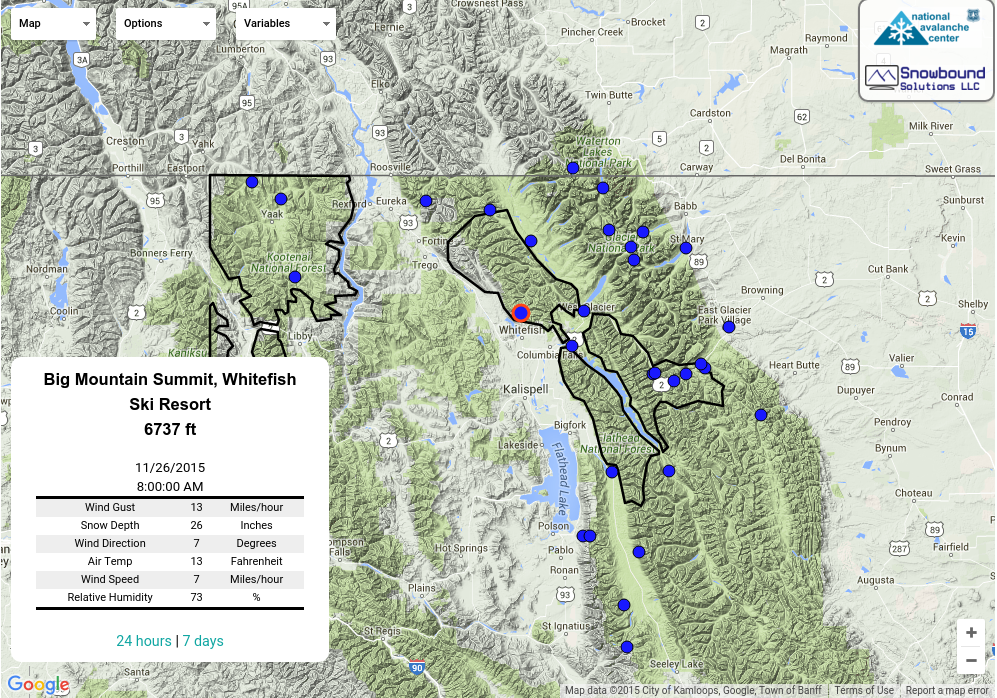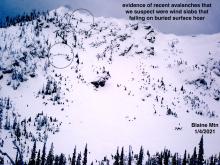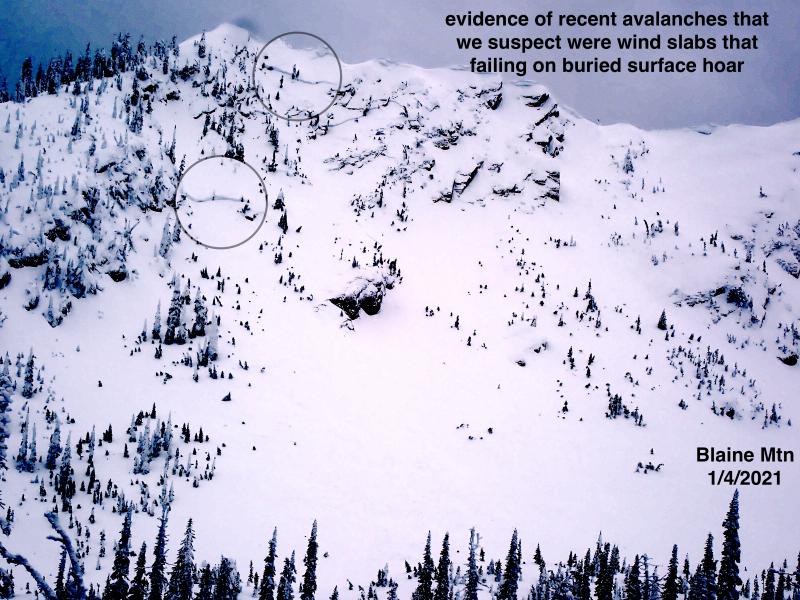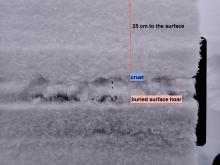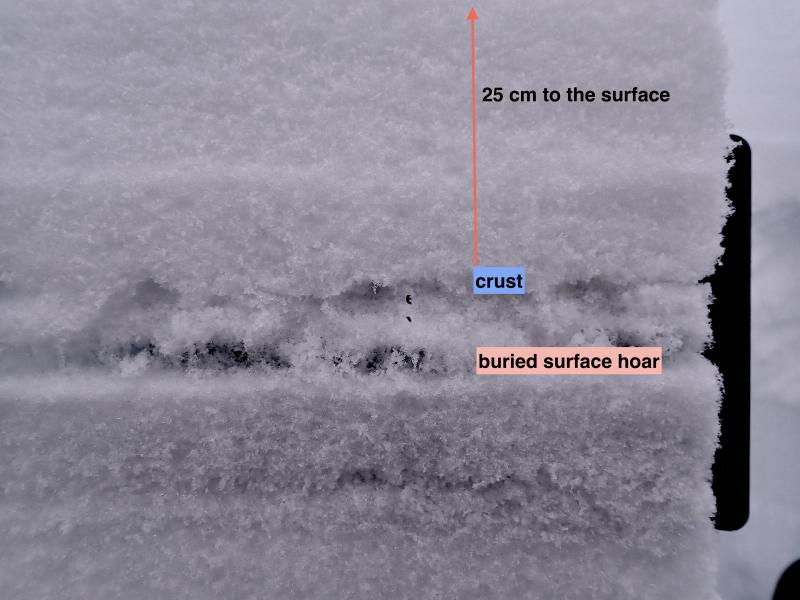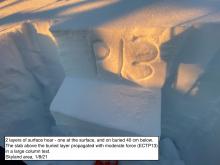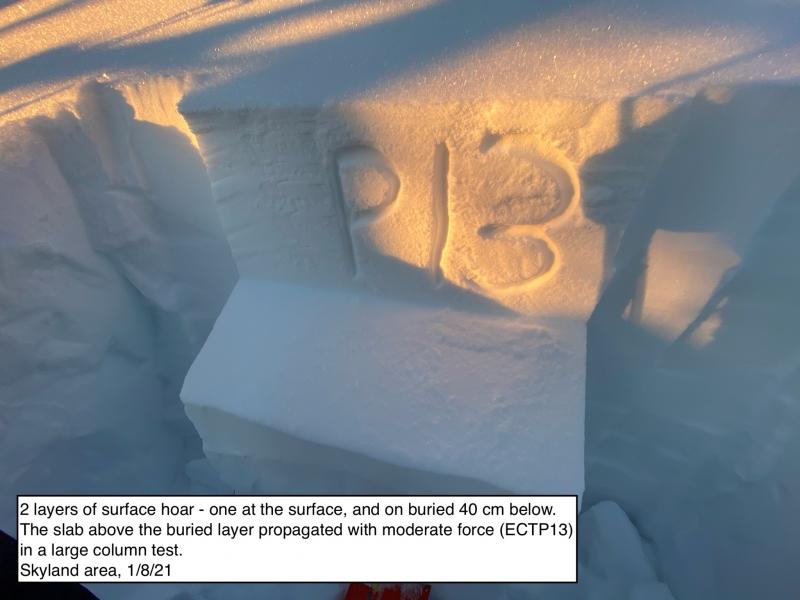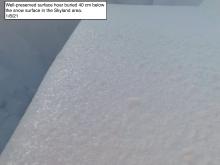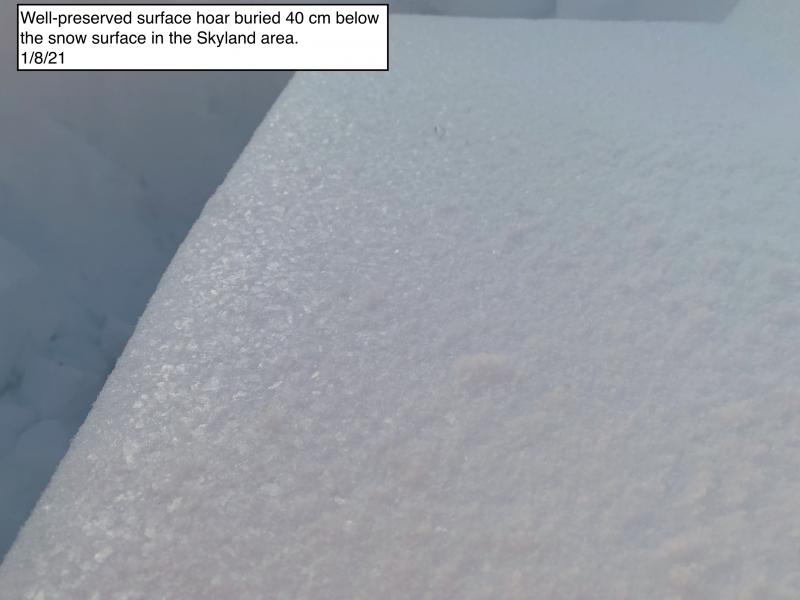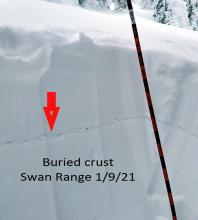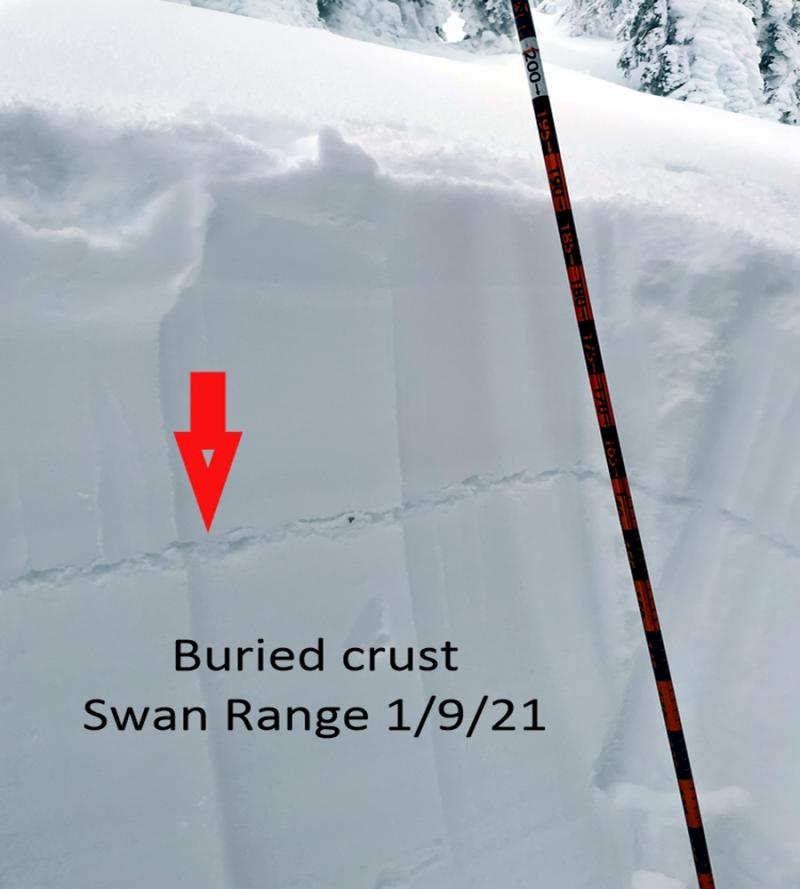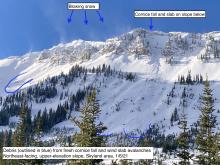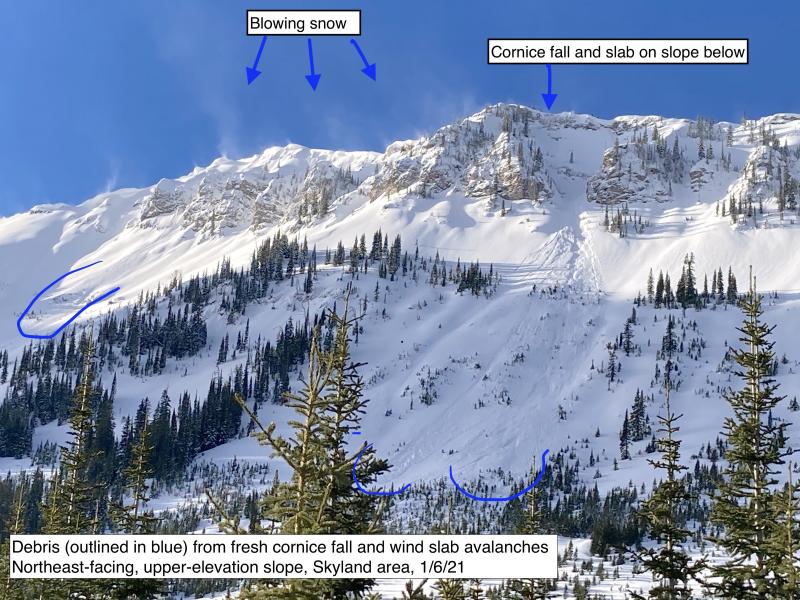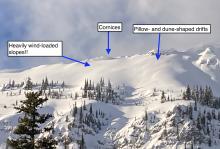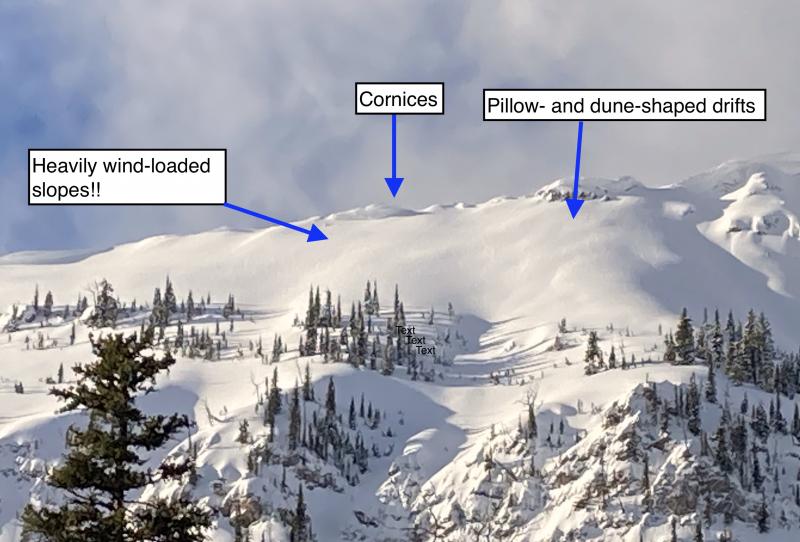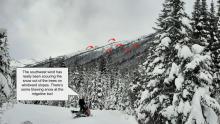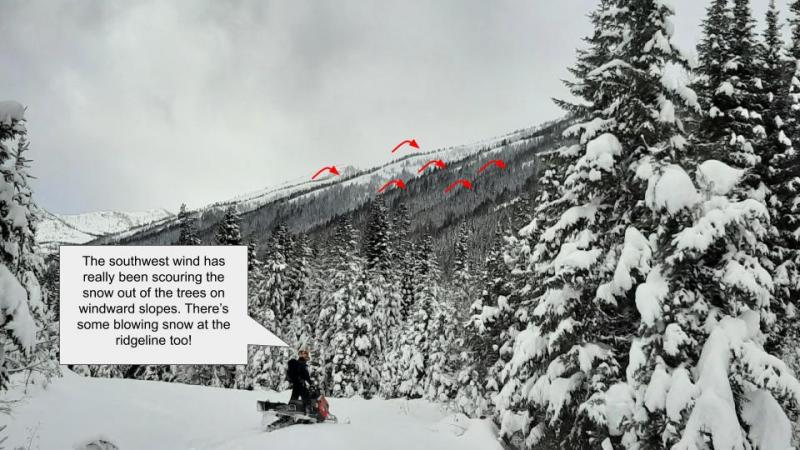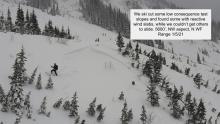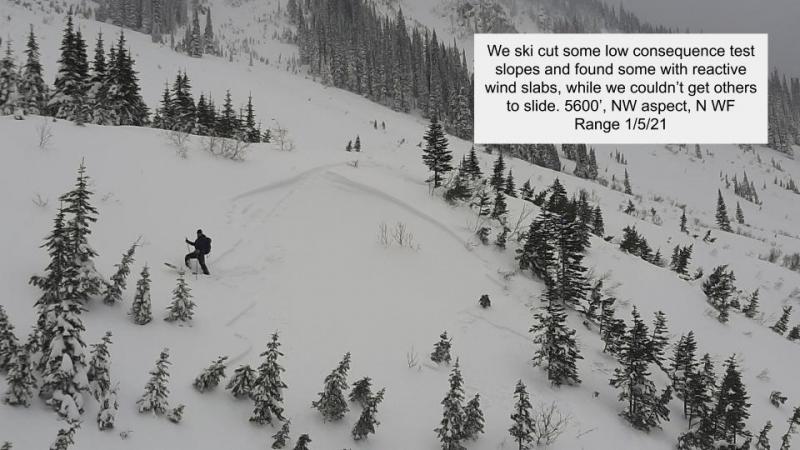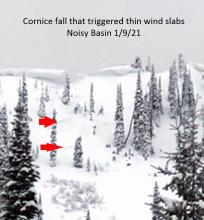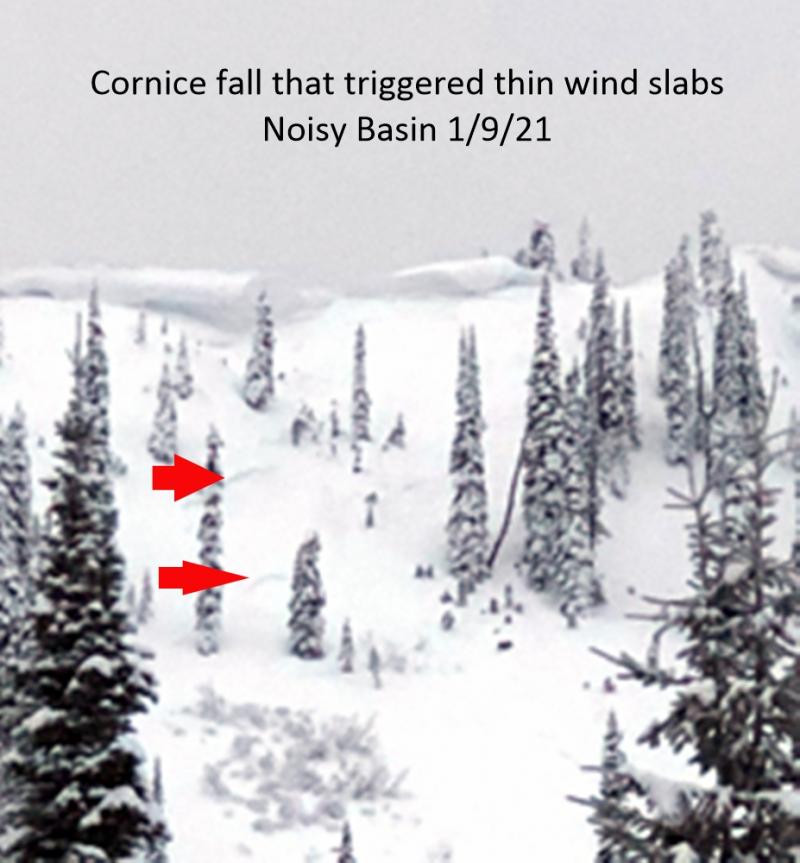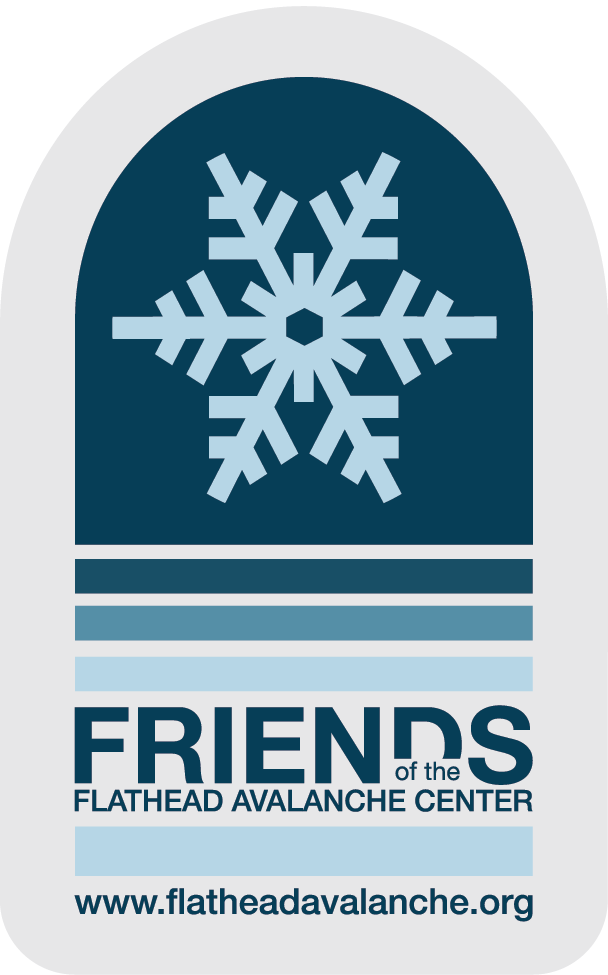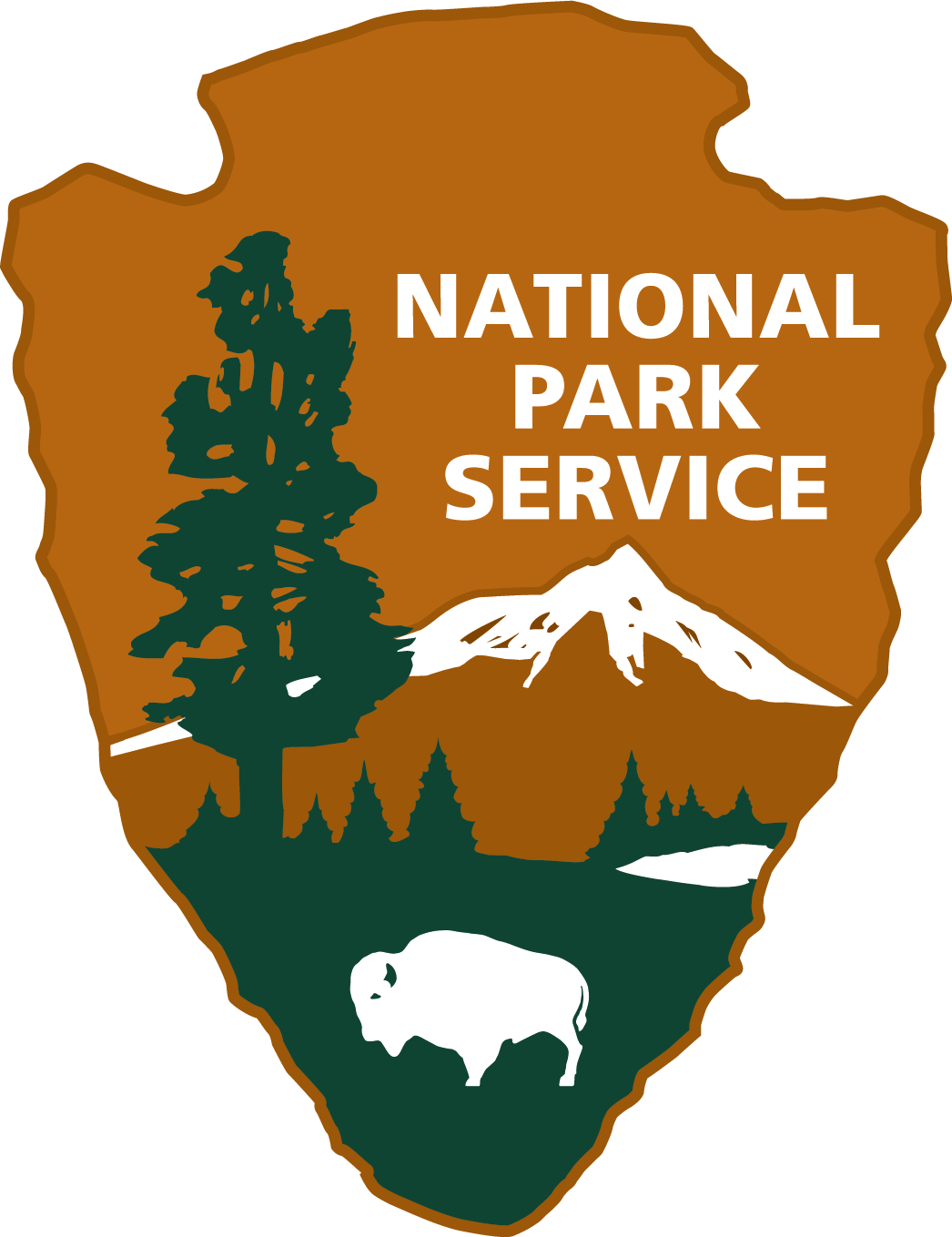| Thursday | Thursday Night | Friday | |
|---|---|---|---|
| Cloud Cover: | Becoming cloudy with snow developing this evening. | Cloudy with potential for snow. | Cloudy with potential for snow. |
| Temperatures: | 35-44 deg. F. | 24-31 deg. F. | 32-42 deg. F. |
| Wind Direction: | Southwest | West | West |
| Wind Speed: | 5-15 mph with gusts to 30 mph (closer to the Divide). | 5-10 mph with gusts to 25 mph. | 5-10 mph. |
| Snowfall: | 0-1 in. | 0-2 in. | 1-2 in. |
| Snow Line: |
Whitefish Range
Swan Range
Flathead Range and Glacier National Park
How to read the forecast
The hazard above 6000 feet today is MODERATE on slopes steeper than 35 degrees and LOW on all other terrain. The late January crust and surface hoar layer continues to show variable results in stability tests still making human triggered avalanches possible. Wind slabs at upper elevations near the tops of ridges also pose a concern. Evalute each slope carefully before committing to ski or ride on it.
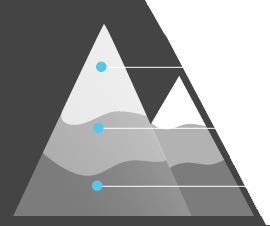
2. Moderate
?
Above 6500 ft.
1. Low
?
5000-6500 ft.
1. Low
?
3500-5000 ft.
- 1. Low
- 2. Moderate
- 3. Considerable
- 4. High
- 5. Extreme
-
Type ?
-
Aspect/Elevation ?

-
Likelihood ?CertainVery LikelyLikelyPossible
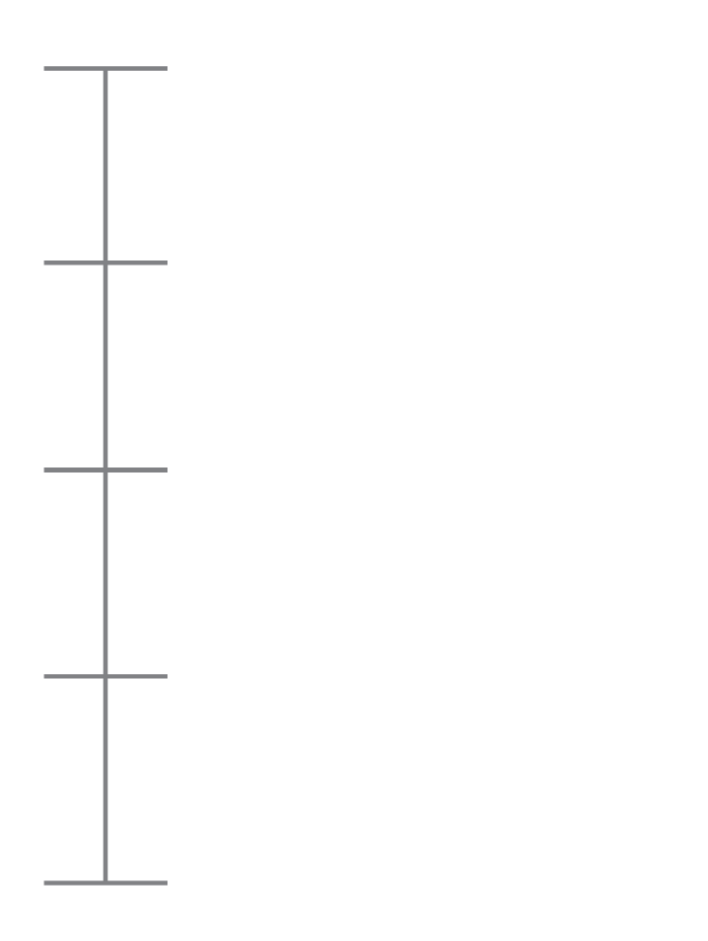 Unlikely
Unlikely -
Size ?HistoricVery LargeLargeSmall

The late January crust with surface hoar and/or facets sitting above it is quite variable throughout the advisory area. The crust exists in all locations, but the surface hoar/facets is either well preserved (photo from the southern Whitefish Range) or non-existent. The depth also varies from 1.5 to 3 feet from the surface. Because of the spotty presence and variable reactivity of this layer it is important to dig into the snow and see if it exists. Perform a stability test like the Extended Column Test to asses the reactivity of this layer. If the layer is reactive stick to slopes less than 35 degrees.
-
Type ?
-
Aspect/Elevation ?
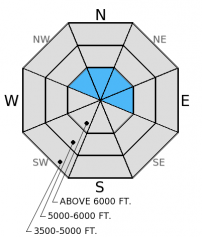
-
Likelihood ?CertainVery LikelyLikelyPossible
 Unlikely
Unlikely -
Size ?HistoricVery LargeLargeSmall

Wind slabs are also rather variable throughout the mountain ranges in our area. The Flathead Range (especially closer to the Continental Divide like the Skyland area and Marias Pass) and Glacier Park saw the most snow and wind from last Sunday. Wind slabs exist and could be up to a foot thick in some locations. Identify convex pillows of wind drifted snow and avoid steep wind loaded slopes.
Wet snow avalanche hazard should diminish today as clouds and wind keep the snow surface from melting. However, if more sun shines than expected keep an eye out for signs of wet snow instability and move to shadier slopes.
Don't forget that the Flathead Avalanche Center, Friends of the Flathead Avalanche Center, and Backcountry Access are hosting a free beacon clinic on Saturday, February 21 at 11:00 am - 1:00 pm. Meet at the beacon park at the top of Big Mountain at Whitefish Mt. Resort. This is open to both motorized and non-motorized backcountry users. So, if you are riding to the summit this weekend, park the sled right there and join us!! Or, stop by if you are skiing or snowboarding at WMR this weekend! You don't need to be there the full 2 hours.
The next regularly scheduled advisory will be issued Saturday, Feb. 21, 2015.
It's a mixed bag in terms of sliding and riding conditions (photo) as well as stability test results throughout the advisory area. In both the Swan (Mt. Aeneas area) and Flathead Ranges (Middle Fork area) this week we found a layer of near surface facets and graupel within the top foot of the snowpack that fractured but did not propagate. One observer in Glacier Park found a couple of weaknesses within the top foot of the snowpack that propagated fractures with moderate to hard force.
The late January crust and surface hoar/facet layer continues to demonstrate variable results. In some tests it propagates fractures with hard force and others it doesn't even fracture (video1 and video 2). Skiers in southern Glacier Park yesterday found this layer to propagate a fracture with hard force.
Yesterday we observed active wind loading on the highest peaks in Glacier Park and found very thin isolated wind slabs in the Skiumah and Rescue Creek drainages. We also saw a new batch of surface hoar growing on the surface that is good to note and look for before new snow potentially buries it. A few small wet, loose avalanches occurred within the past 2-3 days involving the bit of new snow from Sunday (photo).
A bit of a pattern change begins this afternoon for the next several days. As of 4:00 am mountain temperatures above 6000 ft. range from 19º-27º F and winds are moving out of the southwest at 6-9 mph with gusts to 19 mph. Today, temperatures will be in the low to mid 30s F above 6000 ft. and into the 40s F below that. Winds will move out of the southwest at 5-10 mph with gusts to 20 mph in the Swan and Whitefish Ranges and 10-20 mph with gusts to 45 mph in the Flathead Range and southern Glacier Park. Snow (yes, that's right, snow) should begin tonight and we could see up to 6-7 inches by Saturday. Stay tuned.
| 0600 temperature: | 19-27 deg. F. |
| Max. temperature in the last 24 hours: | 22-36 deg. F. |
| Average wind direction during the last 24 hours: | Southwest |
| Average wind speed during the last 24 hours: | 4-14 mph |
| Maximum wind gust in the last 24 hours: | 20-32 mph |
| New snowfall in the last 24 hours: | 0 inches |
| Total snow depth: | 60-88 inches |
This advisory applies only to backcountry areas outside established ski area boundaries. This advisory describes general avalanche conditions and local variations always occur. This advisory expires at midnight on the posted day unless otherwise noted. The information in this advisory is provided by the USDA Forest Service who is solely responsible for its content.

